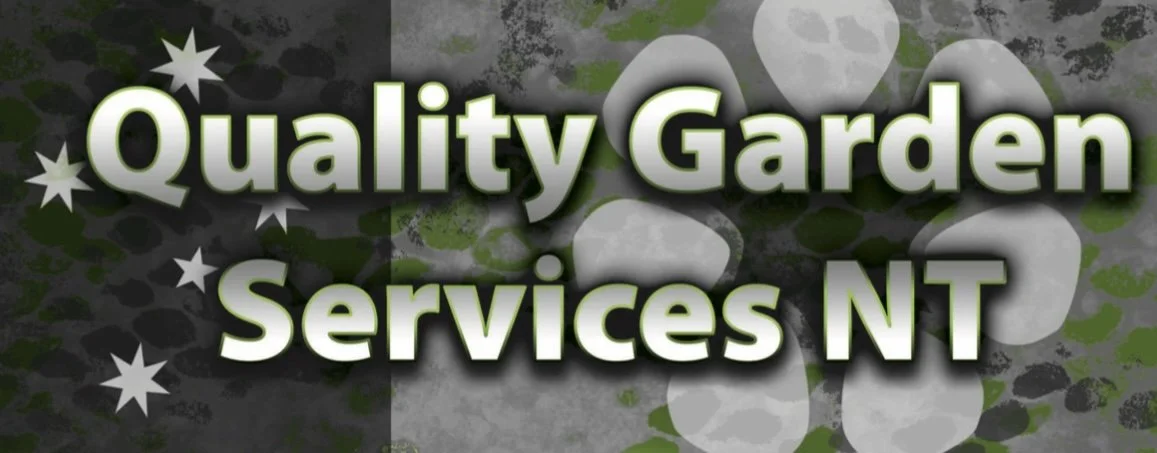What to Do with Green Waste in Darwin
Green waste management is an essential part of maintaining a healthy garden and a sustainable environment. In tropical regions like Darwin, Palmerston or Humpty Doo, Northern Territory, where vegetation grows rapidly due to the warm climate and seasonal rains, managing green waste effectively is vital. Whether you’re a homeowner, gardener, or business owner in landscaping or groundskeeping, understanding what to do with green waste can improve your garden’s health, reduce landfill waste, and even provide valuable resources for your gardening efforts.
In this blog post, we’ll explore what green waste is, how it can be recycled or disposed of, and how to handle specific types of green waste such as leaves, weeds, and larger garden debris. We’ll also discuss the role of burn piles and the importance of adhering to Darwin's burning season regulations. Let’s dive in!
What is Green Waste?
Green waste refers to organic materials from plants that result from gardening, lawn care, or landscaping activities. It includes:
Grass clippings from mowing lawns.
Tree branches and twigs from pruning or trimming.
Leaves that fall seasonally or accumulate during gardening.
Weeds pulled from garden beds or pathways.
Dead plants or flowers that need to be removed.
Palm fronds, which are common in Darwin gardens.
Food scraps (though more commonly associated with composting).
Green waste is a natural byproduct of maintaining gardens and outdoor spaces. In Darwin’s tropical environment, this waste can accumulate quickly due to the combination of high humidity, monsoonal rains, and rapid plant growth. Proper disposal or recycling of green waste ensures it doesn’t pile up, attract pests, or create a fire hazard.
Why is Green Waste Management Important in Darwin?
Darwin’s unique climate and environment make green waste management particularly critical. Here’s why:
Reduce Landfill Waste: Green waste accounts for a significant portion of landfill material. Improper disposal increases greenhouse gas emissions as organic matter decomposes anaerobically in landfills.
Control Pests and Diseases: Piles of green waste can become breeding grounds for pests such as mosquitoes, termites, and rodents. Dead plant material can also harbor fungal diseases.
Fire Prevention: Accumulated dry green waste, such as leaves and branches, can pose a fire risk, especially during the dry season in Darwin.
Sustainable Resource Use: Recycling green waste into mulch or compost benefits gardens by improving soil health and reducing the need for chemical fertilizers.
Compliance with Local Laws: The Northern Territory has strict regulations for burning green waste and waste disposal to protect the environment and maintain air quality.
How to Recycle or Dispose of Green Waste in Darwin
There are several options for managing green waste in Darwin, Palmerston and Humpty Doo. These range from recycling it into useful gardening materials to safely disposing of it.
Let’s explore each method in detail.
1. Composting Green Waste
Composting is one of the most eco-friendly ways to recycle green waste. It transforms organic material into nutrient-rich compost that can be used to improve soil health in your garden. Here’s how to compost green waste effectively:
What to Compost: Grass clippings, leaves, dead plants, non-seeding weeds, and small branches.
Composting Tips:
Create a balanced compost mix by combining “greens” (wet, nitrogen-rich materials like grass clippings) with “browns” (dry, carbon-rich materials like dried leaves).
Avoid composting weeds that have gone to seed, as they may spread when you use the compost.
Turn your compost regularly to aerate it and speed up decomposition.
Composting is ideal for small-scale green waste management and works well for gardeners who want to enrich their soil organically.
2. Mulching
Mulching is another excellent way to recycle green waste. It involves shredding leaves, branches, and grass clippings into smaller pieces that can be spread over garden beds. Mulch helps retain soil moisture, regulate soil temperature, and suppress weed growth.
What to Mulch: Leaves, grass clippings, shredded branches, and palm fronds (if processed properly).
How to Prepare Mulch:
Use a mulcher or wood chipper to break down larger green waste into smaller pieces.
Spread mulch evenly around plants, keeping it away from the base of tree trunks to prevent rot.
Mulching is particularly useful in Darwin’s dry season when soil moisture needs to be conserved.
3. Green Waste Collection Services
Darwin City Council and other local municipalities offer green waste collection services. You can place green waste in designated green bins or arrange for bulk collections. This is a convenient option for homeowners who generate large amounts of green waste but lack the time or resources to compost or mulch.
Accepted Green Waste: Grass clippings, pruned branches, leaves, and weeds.
What’s Not Accepted: Soil, stones, treated timber, or construction waste.
Check with your local council for guidelines on green waste collection schedules and restrictions.
4. Drop-Off at Waste Disposal Centres
For larger amounts of green waste, you can transport it to a designated waste disposal centre. In Darwin, facilities like the Shoal Bay Waste Management Facility accept green waste for processing.
What Happens to Green Waste: Many waste centres process green waste into commercial mulch or compost, which is then sold back to the community.
Fees: Fees may apply based on the volume of green waste, so it’s a good idea to check rates beforehand.
5. Burning Green Waste
Burning green waste is a traditional method of disposal but is heavily regulated in Darwin due to the risk of bushfires and air pollution. The dry season (May to October) is particularly risky for uncontrolled burns. If you plan to burn green waste, keep the following in mind:
Burning Season in Darwin: Controlled burning is allowed during specific times of the year and requires a permit from the Northern Territory Fire and Rescue Service.
What to Burn: Only burn dry green waste like leaves, branches, and palm fronds. Wet or green materials create excessive smoke.
Safety Precautions:
Clear the area around the burn pile to prevent the fire from spreading.
Have water or a fire extinguisher on hand.
Never burn on windy days.
While burning is an option, it should be a last resort due to its environmental impact.
Handling Specific Types of Green Waste
Different types of green waste require different management strategies. Let’s take a closer look at how to handle some of the most common types of green waste in Darwin.
Leaves
Leaves are one of the most common forms of green waste, especially during the dry season when many trees shed their foliage.
What to Do with Leaves:
Compost Them: Leaves are rich in carbon and make an excellent addition to compost.
Mulch Them: Shred dry leaves and use them as mulch around your garden beds.
Use Them in Garden Paths: Spread whole leaves over pathways as a natural weed suppressant.
Avoid burning leaves, as they can produce excessive smoke, which contributes to air pollution.
Weeds (Including Seeded Weeds)
Weeds are a persistent problem in any garden, and they need to be managed carefully to prevent them from spreading.
Non-Seeding Weeds: Add these to your compost or mulch them.
Seeded Weeds:
Do not compost seeded weeds, as the seeds may survive and germinate.
Dispose of them in your council’s green waste collection bin or take them to a disposal centre.
Alternatively, solarize them by placing them in a sealed black plastic bag and leaving it in the sun for several weeks to kill the seeds.
Larger Green Waste (Branches and Palm Fronds)
Larger green waste, such as tree branches and palm fronds, requires more effort to manage.
Recycle Them:
Use a wood chipper to turn branches into mulch.
Palm fronds can be shredded with specialized equipment.
Dispose of Them:
Drop off large green waste at a waste disposal centre.
Arrange for a council bulk green waste collection.
Avoid burning large branches or palm fronds, as they produce a lot of smoke and can be difficult to burn completely.
Tips for Sustainable Green Waste Management
Here are some additional tips to manage green waste sustainably in Darwin:
Plan Your Garden: Choose native plants and trees that require less pruning and produce less green waste.
Regular Maintenance: Engage in regular pruning, weeding, and lawn care to prevent green waste from building up.
Share Resources: If you produce more mulch or compost than you can use, share it with neighbors or community gardens.
Educate Yourself: Stay informed about local regulations on green waste disposal and burning.
Conclusion
Managing green waste in Darwin, Palmerston and Humpty Doo is not just about keeping your garden tidy—it’s about creating a sustainable and environmentally friendly way to deal with the byproducts of gardening and landscaping. By composting, mulching, utilizing council services, and adhering to local burning regulations, you can ensure that your green waste is handled responsibly.
Whether you’re dealing with leaves, weeds, branches, or palm fronds, there’s always a better way to recycle or dispose of green waste than simply throwing it away. With the right practices, you can turn your green waste into a valuable resource that benefits both your garden and the environment.
Remember, green waste management is not just a task—it’s an opportunity to contribute to sustainability while maintaining the beauty and health of your outdoor spaces. So, the next time you find yourself faced with a pile of green waste, think beyond disposal and consider how you can recycle, reuse, or repurpose it. Your garden—and the planet—will thank you for it!
We provide comprehensive services including lawn care, pruning, weed control, mulching, turf management and irrigation checks, all tailored to your property’s specific needs. Our team of experienced professionals is dedicated to keeping your property in top condition year-round, regardless of the season. We’re not just about making your garden look good—we’re about creating a lasting impression for your clients, residents, and visitors.
If you’re in Darwin, Palmerston, Humpty Doo or the rural areas and looking for reliable, trusted garden & grounds maintenance services, look no further than Quality Garden Services NT.
We specialize in turf management, grounds maintenance, and garden care in Darwin and the Northern Territory.
Contact us today (0498649535) to learn more about how wetting agents can transform your lawn!
At Quality Garden Services NT, we understand how important it is to maintain a lush, healthy lawn and vibrant garden in Darwin’s unique climate.
Why Choose Us?
Choosing the right grounds maintenance and gardening service is crucial for the health and appearance of your property. Here’s why we stand out:
Local Expertise: Our team is familiar with the unique climate and soil conditions of the Darwin, Palmerston, Humpty Doo and surrounding areas. We know what works best for your gardens and lawns.
Quality Service: We are committed to delivering high-quality work. Our goal is to exceed your expectations, leaving you with well-maintained outdoor spaces.
Customer Satisfaction: Your satisfaction is our priority. We take the time to listen to your needs and tailor our services accordingly - be it for commercial or private properties.
Thank you for visiting our website!



